Immune System
The immune system is a complex network of cells, tissues, and organs that work together to protect the body from harmful substances such as pathogens, toxins, and cancer cells. It is the body's defense mechanism against infections and diseases.
Components of the Immune System
- White Blood Cells (Leukocytes): These cells are the primary defenders of the immune system. They include lymphocytes, neutrophils, monocytes, eosinophils, and basophils.
- Antibodies: Proteins produced by the immune system to help neutralize and eliminate pathogens.
- Lymphatic System: A network of vessels and organs, including the spleen, thymus, and lymph nodes, that help in the production and transport of immune cells and fluid.
- Bone Marrow: The spongy tissue inside bones where blood cells, including immune cells, are produced.
- Thymus: A gland located in the chest that plays a vital role in the development of T-lymphocytes, a type of white blood cell.
- Spleen: An organ that filters blood and stores immune cells to respond to infections.
Functions of the Immune System
The immune system performs several important functions, including:
- Recognizing and responding to pathogens
- Destroying and eliminating harmful substances
- Remembering past infections to provide immunity
- Regulating immune responses to prevent damage to the body's own tissues
Disorders of the Immune System
Disorders of the immune system can lead to immune deficiencies, autoimmune diseases, and hypersensitivity reactions. Some common immune disorders include:
- Autoimmune Diseases: Conditions in which the immune system mistakenly attacks the body's own cells and tissues, such as rheumatoid arthritis and lupus.
- Immunodeficiency Disorders: Conditions that weaken the immune system, making the body more susceptible to infections, such as HIV/AIDS.
- Allergies: Hypersensitivity reactions to harmless substances, leading to symptoms such as sneezing, itching, and hives.
Study Guide
To study the immune system, you should focus on the following key areas:
- Understanding the different types of white blood cells and their roles in the immune response.
- Exploring the process of antibody production and how they combat pathogens.
- Learning about the organs and tissues involved in the immune system, including their functions and interactions.
- Investigating the mechanisms of immune responses to infections and diseases.
- Identifying common immune disorders and their underlying causes.
By mastering these concepts, you will gain a comprehensive understanding of the immune system and its significance in maintaining overall health and well-being.
[Immune] Related Worksheets and Study Guides:
.◂Science Worksheets and Study Guides Eighth Grade. Organic compounds
Study Guide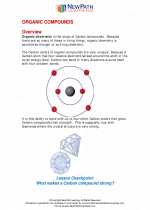 Organic compounds
Organic compounds  Worksheet/Answer key
Worksheet/Answer key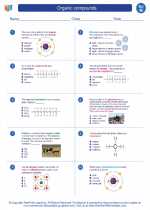 Organic compounds
Organic compounds  Worksheet/Answer key
Worksheet/Answer key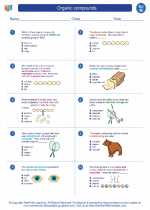 Organic compounds
Organic compounds  Worksheet/Answer key
Worksheet/Answer key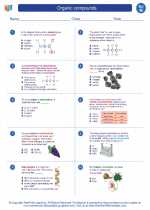 Organic compounds
Organic compounds  Vocabulary/Answer key
Vocabulary/Answer key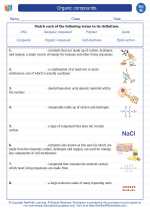 Organic compounds
Organic compounds  Vocabulary/Answer key
Vocabulary/Answer key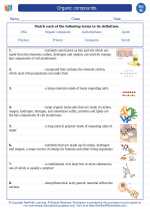 Organic compounds
Organic compounds 

 Worksheet/Answer key
Worksheet/Answer key
 Worksheet/Answer key
Worksheet/Answer key
 Worksheet/Answer key
Worksheet/Answer key
 Vocabulary/Answer key
Vocabulary/Answer key
 Vocabulary/Answer key
Vocabulary/Answer key

The resources above cover the following skills:
Physics: Students will use scientific skills and processes to explain the interactions of matter and energy and the energy transformations that occur.
Thermodynamics: Identify and explain that heat energy is a product of the conversion of one form of energy to another.
Identify and describe the various forms of energy that are transformed in order for systems (living and non-living) to operate: Chemical - Flashlight-Light; Mechanical - Pulleys-Motion; Solar/Radiant - Solar calculator; Chemical - Plant cells.